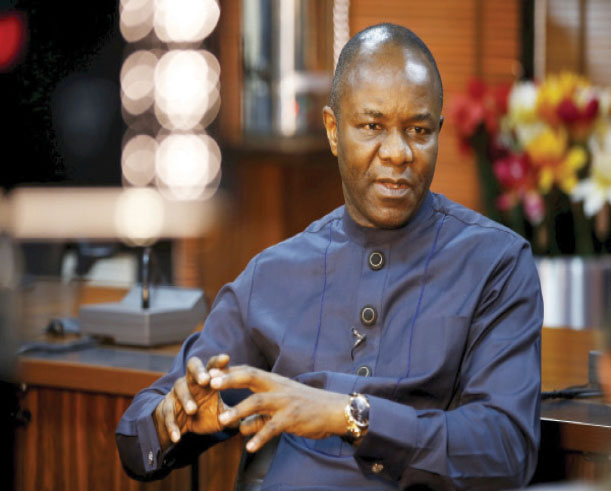By Kelechi Mgboji
Assistant Business Editor
TheNiche has uncovered a link between officials of The Pipelines and Products Marketing Company Ltd (PPMC) and a cartel specialising in creating scarcity of gas with the objective of manipulating prices for profiteering.
And unless, the leadership of Nigerian National Petroleum Corporation (NNPC) under the Minister of State for Petroleum Ibe Kachikwu, rises to the occasion and sanitises the system, the cabal, many of whom were very loyal to the Goodluck Jonathan administration will continue with their stock in trade to create bad image for the government of President Muhammadu Buhari.
About two months ago, a 12.5kg of gas sold for N2,500 and a 20 metric tonnes for N2 million.
But today, the same 12.5kg gas is sold for N4,000 while 20 metric tonnes goes for more than N4 million.
TheNiche investigation revealed that with the sharp increase in gas price occasioned by artificial acute scarcity, more people who could no longer get it to buy or afford it where it is available now focus on kerosene which is a close substitute for gas.
The consequence is also a sharp increase in price of kerosene to about N220 per litre as the product is in short supply. The NNPC is said to be the only importer of kerosene at the moment.
What is the justification for the more than 100 per cent increase? Scandalous profiteering!
This is how it is perpetrated between PPMC which is a subsidiary of NNPC and Nav Gas, a subsidiary of Vitol Group, a private firm based in Lagos.
Between PPMC officials and Nav Gas monopoly
The sharp rise in gas price is driven by acute scarcity carefully orchestrated by officials of PPMC and Nav Gas.
There are two terminals for gas supplied to Lagos marketers by Nigeria Liquefied Natural Gas Company based in Bonny, Rivers State.
These are PPMC dedicated multi-products terminal at Apapa and Nav Gas terminal strictly constructed for gas.
A very reliable source disclosed that what happens is that when ship load of gas arrives from Bonny to discharge the product at PPMC multi products terminal, officials would allegedly divert the vessel to Nav Gas terminal.
PPMC officials are said to give priority to premium motor spirit (PMS) otherwise called petrol and would always take delivery of fuel but divert gas to Nav Gas terminal in connivance with officials of the private firm.
“When the PPMC diverts gas discharge to Nav Gas, they create a monopoly which empowers Nav Gas to create acute scarcity and thereafter fixes arbitrary prices and makes a lot of money to settle PPMC officials,” our source disclosed.
Our source, who did not want his name in print, added that “ordinarily, as Nav Gas is getting supply, PPMC should be getting too. And from PPMC terminal, Conoil, Nipco, Mobil, every other company will key in their hose and take their product to their own tank in their plant.
“But because of this frustration, the only terminal that will get delivery is Nav Gas. After, PPMC officials would give flimsy excuses that they did not want the vessel to incur demurage which is about $45,000.
“That’s the excuse they always give, saying they would not suspend the discharge of fuel for LPG (gas). So they would now divert vessels bringing gas to Nav Gas terminal.
“Curiously enough, these PPMC officials are the ones that schedule timetable for berthing of ships.”
Marketers scream foul
Both the Nigerian Association of Liquefied Petroleum Gas Marketers (NALPGAM), and the Liquefied Petroleum Gas Retailers (LPGAR), branch of NUPENG, are screaming foul, and the LPGAR said it is mobilising members for peaceful protests at both the National Assembly (NASS) and the Ministry of Petroleum in Abuja.
NALPGAM Executive Secretary, Bassey Essien, said in about five days the price of gas rose from N2.4 million per truck to N4 million until other terminals got supply and it dropped to N3.3 million.
He blamed it all on what he called “systematic deliberate manipulation of persons who man the vessels which supply gas such that the supply favours a terminal at the expense of others.”
According to him, the way vessels are scheduled is such that if you lose your position, they take it to Nav Gas which can take it over instead of waiting indefinitely, and then you join the queue again for another turn.
He explained that if only the authorities can schedule two vessels in a month to supply gas, it would reduce the bottlenecks and restore some sanity in the system.
“If there is adequate supply, making sure that every terminal has the product at all times, there will not be distortion of price. The current sharp rise in price is not as a result of any increase because LNG has not increased price. It is price distortion,” Essien told TheNiche in telephone interview.
LPGAR Chairman, Michael Imudu, said he strongly suspect that off takers and major marketers who take delivery from the LNG have hijacked the market and created a cartel now manipulating prices for profiteering.
“Off takers should tell us what the reason is for the sharp rise in price of gas because LNG has not increased the price, and it is not imported with dollars.
“The information we got is that LNG is surprised over what is happening because they are not aware of any supply shortage that could warrant sharp rise in price.
“There had been little, little manipulations in the past, and we overlooked them. But now, it has got out of hand. Can you imagine somebody making profit of more than N2 million on a 20 metric tonne truck of gas. We cannot keep quiet any longer,” he said.
According to him, the steep rise started gradually since April but because of the changes in foreign exchange rate, the increases were taken for granted and customers hardly noticed.
Over the period, he recalled, the cartel built up confidence as nobody was able to checkmate their excesses, “now their feeling is that they (cartel) can do anything and get away with it. That is what is happening now.
“It is exploitation of the highest order.”
Enter kerosene
Giving insight into the cause of 140 per cent rise in the price of kerosene, the key stakeholders identified a couple of causes also linked to marketers’ entrenched interest and activities of the cabal, even as the NNPC shares some blame.
Kerosene scarcity, which has hit Lagos and other major cities across the country, has caused a hike in price from N500 to N1,200 for four litres (gallon) as few outlets sell the product.
The Petroleum Products Pricing Regulatory Agency (PPPRA), had in January, increased the price of household kerosene from N50 to N83 per litre, believing that at that price, the product has been fully deregulated.
Despite deregulation, most marketers suspended importation, leaving the NNPC as the only importer of kerosene at the moment.
TheNiche investigation revealed that marketers who had benefitted heavily from the discredited regime of subsidy instituted by Jonathan abandoned imports of kerosene.
It was learnt that the decision to abandon kerosene import has nothing to do with foreign exchange (forex) crisis as the Central Bank of Nigeria (CBN) gives priority to forex meant for petroleum products imports.
“Abandoning kerosene imports for the NNPC was purely out of solidarity for previous administration. With subsidy having gone, the marketers no longer find it attractive in any way to import kerosene, instead they are rather keen on sabotaging the system to score cheap point against ruling government,” said a stakeholder who pleaded not to be mentioned.
Another factor said to have worsened the skyrocketing price of kerosene is the acute scarcity of cooking gas as customers in major cities have shifted demand to kerosene, leading to demand pressure for the insufficient quantity imported by the NNPC.
Energy stakeholders suggested that kerosene price will continue to rise until marketers begin to import it to augment NNPC supply, which is hardly enough for those in the hinterland, the majority of whom rely on kerosene for lighting their homes and cooking stove.
“Demand pressure for kerosene will continue for long period because supply is heavily lower than demand. People in the hinterlands where electricity is non existent need kerosene.
“Market women in the cities largely use it to light their local lamps. And huge population of homes use kerosene stoves for cooking.
“Now, those who used to cook with gas cannot find gas to buy. They have switched over to kerosene, at least, for the time being.
“All these depend on the insufficient quantity imported by the NNPC. So, demand pressure will continue until something urgent is done to address the situation,” said a filing station manager in Ikeja.
The manager who refused to give his name for fear of being quoted, also dropped insight as to why pump price of petrol is dropping below the approved price in some filing stations.
Approved price for petrol is between N135 and N145 per litre. Currently, some filling stations dispense fuel at between N132 and N145 per litre, and marketers are optimistic that the price will fall considerably from next month due to the latest forex policy.
Fuel price drops
Corporate Affairs Manager, Nipco Plc, a popular oil marketing firm, Taofeeq Lawal, was quoted by another newspaper as saying that some marketers were able to access forex at N250 to the dollar when the policy was initially introduced by the CBN, as against the N360 rate at the parallel market.
He explained that at the new rate, which was less than the N288/dollar projected by the PPPRA, oil marketers had more chances to reduce petrol price and still make good profit.
When asked to state when the petrol price would drop, Lawal said: “The PMS price has crashed; the issue is that maybe the crash is not up to what people are expecting.
“At N143, it has crashed by N2 and may still crash further, even if it is 50 kobo. But just hold on, a further reduction in price will come soon.
“For example, if you got the dollar at between N250 and N280 since the policy started [two weeks ago], and the government had projected it at between N285 and N289 as contained in the PPPRA template, then you should expect some crash in prices (of fuel) in the near future.
“Even if you get the dollar at N250 and order for products, it will take a minimum of three to four weeks before the products will get to Nigeria.
“So, if the dollar rate can be maintained and if people can be lucky to get it below the projected N288 peg of government in the PPPRA template; and if you are able to get it at N250 and you want to pull volume, why won’t you reduce your price?
“Therefore, if the new forex policy is sustained, there is no way petrol prices won’t fall. So, sustainability is vital, as it will ensure further reduction in price, all things being equal.”
Efforts to get NNPC Group General Manager, Public Affairs, Garba Deen Muhammed, proved abortive as his telephone line was switched off. Email message sent to his box seeking his comments over the weighty allegation levelled against the NNPC subsidiary (PPMC) was not replied as at the time of going to press.













